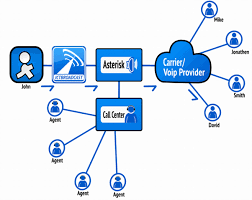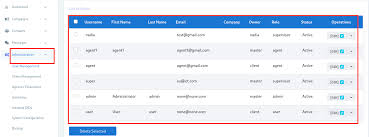Cloud CRM Software: The Smartest Way to Manage Customer Relationships
Introduction to Cloud CRM Software
In today's business environment, effectively managing customer relationships is vital for achieving success. Businesses of all sizes require an efficient solution to monitor interactions, sales, support requests, and customer preferences. This is wherecloud CRM software becomes essential. It provides companies with a robust, scalable, and economical way to optimize customer relationship management (CRM) processes without the burden of maintaining on-site infrastructure. In contrast to traditional CRM systems that necessitate significant IT upkeep, cloud CRM software runs on remote servers and is accessible via the Internet. This allows businesses to securely manage their customer information from any location globally. The advantages of cloud CRM software go beyond simple accessibility; it fosters collaboration, boosts customer service, automates mundane tasks, and offers valuable insights through sophisticated analytics.What is Cloud CRM Software?
Cloud CRM software refers to a customer relationship management system that operates on cloud infrastructure. Unlike conventional CRM solutions that necessitate installation on on-premises servers, cloud-based CRM can be accessed via a web browser, providing businesses with both flexibility and convenience. It enables organizations to oversee customer interactions, sales funnels, marketing initiatives, and support inquiries within a unified digital platform. With cloud CRM software, companies can safely store customer information in the cloud, guaranteeing that teams have immediate access to essential data. Whether it's a startup, a small enterprise, or a large corporation, cloud-based CRM solutions can adjust to various business requirements, enhancing customer management to be more efficient and data-focused.Why Use Cloud CRM Software?
Enhanced Access and Mobility
One of the primary motivations for businesses to choose cloud CRM software is its accessibility. Since the software operates in the cloud, users can retrieve customer data, sales reports, and analytics from any device, anywhere around the globe. This guarantees that sales teams, customer service agents, and managers can remain connected even when working remotely.Cost-Effectiveness and Scalability
In contrast to on-premises CRM systems that necessitate costly infrastructure and maintenance, cloud CRM software functions on a subscription model. This minimizes initial expenses and enables businesses to expand their CRM solution as they evolve. Whether an organization needs to onboard more users or enhance features, cloud CRM systems offer unparalleled flexibility.Smooth Collaboration
A cloud-based CRM fosters team collaboration by permitting multiple users to operate on the same platform simultaneously. Sales, marketing, and customer support teams can exchange real-time data, updates, and insights, facilitating a more unified approach to customer engagement.Streamlined Business Processes
Automation is a significant benefit of cloud CRM software. Organizations can automate routine tasks such as email follow-ups, lead monitoring, invoicing, and appointment scheduling. This conserves time and minimizes the likelihood of human errors, enabling teams to concentrate on strategic initiatives.Enhanced Data Protection
Data security is crucial for businesses managing sensitive customer information. Cloud CRM software vendors employ strong security protocols, including encryption, multi-factor authentication, and data backups, ensuring that business data remains safeguarded against cyber threats.Improved Customer Experience
With immediate access to customer information, businesses can offer personalized experiences. Cloud CRM software allows organizations to monitor customer preferences, history, and interactions, enabling them to provide customized recommendations and support, thereby enhancing overall customer satisfaction.Key Features of Cloud CRM Software
Contact and Lead Management
Cloud CRM solutions function as a centralized repository for businesses to store and oversee customer contact information, communication history, and lead statuses. This functionality ensures that sales teams can quickly access pertinent customer data, facilitating personalized interactions and efficient follow-ups. Leads can be segmented according to interest levels, interactions, or demographics, enabling teams to prioritize prospects with the highest potential. Furthermore, automated reminders assist sales representatives in managing their follow-ups, ensuring no opportunity is overlooked. Businesses can track every interaction—be it emails, calls, or meetings—providing a smooth lead-nurturing experience. With AI-enhanced lead scoring, companies can concentrate on leads with the highest likelihood of conversion, ultimately boosting sales performance and customer relationships.Sales Pipeline Tracking
A clearly defined sales pipeline is vital for refining sales processes, and cloud CRM software presents a visual outline of each stage of a deal. Businesses can monitor prospects from their initial contact to final conversion, pinpointing any bottlenecks and inefficiencies along the way. The software offers real-time updates, giving sales managers visibility into current deals and enabling them to offer timely guidance. Automated alerts and notifications ensure that sales representatives remain aware of essential follow-ups or deadlines. Tools for revenue forecasting assess past performance along with current deal status, aiding businesses in making informed strategic choices. Additionally, cloud CRM facilitates collaboration among sales teams, allowing members to exchange updates, notes, and tasks in real-time for greater alignment and transparency.Marketing Automation
Cloud CRM software incorporates marketing automation to enhance lead generation and customer engagement processes. Businesses can execute automated email campaigns, monitor customer interactions, and tailor marketing strategies based on user behavior and preferences. Drip marketing campaigns assist in nurturing leads over time, while A/B testing tools help businesses refine their messaging for improved engagement. Social media integration enables targeted advertising and tracks customer interactions across various platforms. AI-driven marketing insights examine campaign effectiveness, providing suggestions for enhancements to achieve better conversion rates. With segmentation and behavioral tracking, businesses can deliver the right message to the appropriate audience at the optimal moment, boosting customer engagement and retention.AI-Powered Analytics and Reporting
Making decisions based on data is fundamental for contemporary businesses and cloud CRM software offers sophisticated analytics and AI-influenced insights. The software evaluates customer behavior, purchasing patterns, and sales trends to present actionable insights that assist businesses in fine-tuning their strategies. Predictive analytics empower businesses to foresee customer needs, forecast sales, and allocate resources effectively. Customizable reports allow organizations to monitor key performance indicators (KPIs), evaluate team performance, and recognize areas needing improvement. AI-powered suggestions recommend optimal actions to enhance customer engagement and close more sales. Through real-time dashboards, businesses can track performance metrics and confidently make data-driven decisions.
Customer Support and Ticketing System
An effective customer support system is essential for business success, and cloud CRM software features a built-in ticketing system that guarantees customer inquiries and problems are handled efficiently. Companies can monitor support tickets from their initiation to resolution, ensuring prompt replies and enhanced customer satisfaction. AI-driven chatbots address common customer questions, decreasing response times and enabling human representatives to concentrate on more complex issues. Automated ticket distribution directs inquiries to suitable departments, improving workflow efficiency. Tracking service-level agreements (SLAs) guarantees that response and resolution times are consistently met. Customer support teams can also review customer history, providing a tailored and effective service experience.Integration with Third-Party Applications
To boost workflow efficiency, cloud CRM software integrates smoothly with various third-party applications, such as email services, e-commerce platforms, accounting software, and customer support systems. API support enables businesses to tailor integrations to meet their specific requirements. Businesses can synchronize their CRM with marketing tools for cohesive campaign execution or link with accounting software to simplify invoicing and financial management. Integration with e-commerce platforms allows businesses to oversee customer orders, monitor purchases, and engage customers effectively. By centralizing business functions, CRM software minimizes manual tasks and improves overall productivity.Mobile CRM Access
Through mobile CRM access, sales teams and managers can handle customer relationships while on the move. A dedicated mobile application allows users to retrieve customer information, update records, and finalize deals from their smartphones or tablets. Instant notifications keep users informed about important tasks and client interactions. Offline access permits users to enter and revise data even when internet connectivity is not available, with automatic syncing occurring once they reconnect. Mobile CRM enhances agility, ensuring that sales representatives remain effective and responsive no matter their location.Workflow Automation
By automating repetitive tasks like responding to emails, assigning tasks, and sending follow-up reminders, productivity is enhanced while ensuring consistency in customer engagement. Companies can establish triggers based on particular customer actions, which facilitates timely interactions. For instance, when a customer completes a contact form, the CRM can automatically generate a follow-up task assigned to a sales representative. Streamlined workflows boost efficiency by minimizing manual data input and guaranteeing uniform processes. This results in quicker response times, improved organization, and heightened customer satisfaction.Customizable Dashboards
Dashboards that can be customized enable businesses to monitor critical KPIs and sales metrics tailored to their unique operations. Users have the flexibility to add widgets, graphs, and reports to present vital information in an appealing visual format. The drag-and-drop customization feature allows teams to personalize their dashboards according to their specific roles and duties. Real-time data visualization facilitates rapid decision-making by providing immediate insights into business performance. Dashboards aid companies in tracking progress, identifying trends, and uncovering improvement opportunities, fostering a data-driven growth strategy.Multi-User Access and Role-Based Permissions
Cloud CRM solutions provide secure data access through multi-user functionality and role-based permissions. Organizations can specify user roles and limit access to sensitive information depending on job functions. Sales teams can view lead information, while finance teams can access invoicing details without overlap. Detailed permission settings heighten security, ensuring adherence to industry regulations and preventing unauthorized data access. Companies can also monitor user activities, promoting accountability and transparency within the organization.
